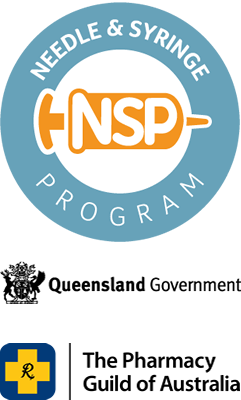 The Pharmacy Needle and Syringe Program (PNSP)
The Pharmacy Needle and Syringe Program (PNSP)
The Queensland Needle and Syringe Program aims to reduce the incidence of blood-borne viruses and injecting related injuries and diseases. The program supplies sterile injecting equipment to people who inject drugs (PWID) with the aim of ensuring PWID do not re-use and share needles, thus decreasing injection-related harms and reducing the spread of blood-borne viruses within the wider community.1
The PNSP is funded by the Communicable Diseases Branch of Queensland Health and administered by The Pharmacy Guild of Australia, Queensland Branch.
Information for participating pharmacies
Order sharps, arrange bin collections and access all program resources.
Information for Consumers
Download the PNSP mobile app, find participating pharmacies and learn about safer injecting practices and blood-borne viruses.
Take Home Naloxone Program
Learn more about the Federal Government's Take Home Naloxone Program
07 3831 3788
The PNSP provides hypertext links to a number of other service providers and websites as a way to provide resources and information to both the public and participating PNSP pharmacies. This does not mean that 1) the PNSP endorses these service providers, and websites (and the material contained) in any way and 2) the PNSP cannot be held liable for the service(s) provided by these service providers or the accuracy of material contained in the websites.